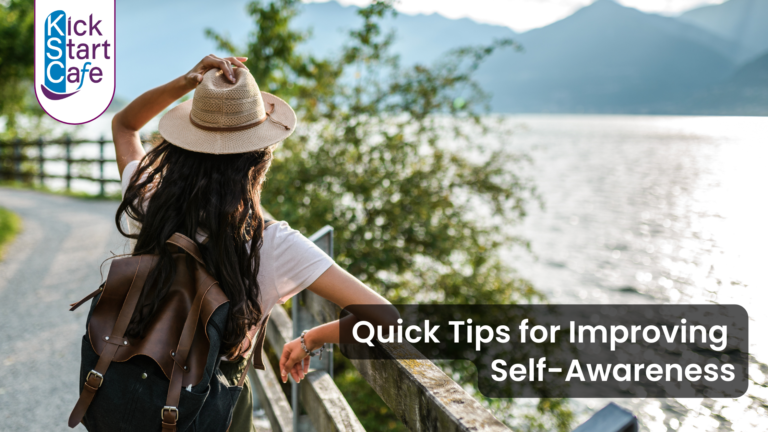How self-aware do you consider yourself to be?
● Are you aware of your strengths and weaknesses?
● Do you know what kind of things trigger your emotional and physical responses in daily life?
● Are you conscious of the opportunities and challenges that present themselves to you daily, and what your options are to overcome them?
Self-awareness is an often-underestimated skill that anyone can learn to improve with the right activities.
The more you understand yourself, the more likely it is that you’ll be able to reach your long-term goals, find happiness, and even strengthen your overall confidence and self-esteem.
Today, we’re going to be looking at some of the ways you can quickly and effectively
raise your self-awareness and overcome moments of confusion.
Defining Self-Awareness
Self-awareness is the art of paying attention to the way you think, behave, and feel.
It means looking carefully at patterns in the way you perceive the world,
yourself, and the people around you.
Self-awareness also includes understanding your moods and emotions and how they
influence the things you do.
Someone who is self-aware can pay attention to their actions in any situation and
determine whether they’re taking the best steps to preserve their interests, or
whether they could be heading in the wrong direction.
If you have negative default responses to things, self-awareness can help you to
overcome them. For instance, those with alcohol issues or cigarette addictions often
benefit from becoming more self-aware.
So, how do you become more self-aware? Try these techniques.
1. Notice What Bothers You About Others
This might seem counterproductive, as paying attention to others pulls the focus
away from you. However, sometimes, when we’re struggling with our self-
awareness, we find it easier to project the things we don’t like in ourselves
onto other people.
For instance, you might find that you hate it when others lie to you. However, if you
look a little closer at your actions, you might discover that you tend to bend the truth
too – even if only in certain aspects of your life.
Make a list of the properties you dislike about other people and try to focus on
pinpointing the moments when you show those characteristics yourself.
At the same time, it may also be helpful to make a list of the things you like to see in
others, so you can actively try to show more of those properties yourself.
2. Pay Attention to Your Thought Processes
Most of us have ingrained responses to things that we’ve developed over time. For instance, people who smoke tend to reach for a cigarette automatically whenever they feel stressed or overwhelmed. Sometimes, these processes are so automatic that we don’t even realize what’s happening until we’ve already done something.
If you want to be more self-aware, take a moment to pause the next time you have an automatic response to something. Be aware of how you’ve responded at that moment and try rewinding through your thought processes. What led you from the point of feeling stressed to opening your first bottle of beer, for instance?
Sometimes, it won’t be a specific thought or series of thoughts that led to the action, but a simple feeling, or gut desire for something. The more you make yourself aware of those automated reactions, the more you can begin to question them when you notice them starting.
You can also be more aware of the triggers that cause those responses to happen.
3. Ask for Feedback
Finally, asking for feedback can help you to become more aware of the things that
others see in you.
Sometimes, we’re so used to the image that we create of ourselves in our mind, that we replace reality with our perception. We all have blind spots that make it more difficult to solve the real problems we have in our lives.
For instance, you might think that your biggest issue is that you can’t control your emotions when something happens in your relationship. However, your girlfriend might think that the problem is that you don’t talk enough about how you feel.
Asking for insights from others in your life allows you to view your actions and feelings from a different perspective.
Just ensure that you’re comfortable with the person you ask for feedback from. If you don’t like the person very much, or you don’t trust their opinion, then this is going to skew your perception of yourself even further.
Once you get the feedback, remember to take it well. Avoid looking at negative
comments as a direct attack on you. Instead, see them as a chance to develop
and grow.
You can strengthen your self-awareness by using these strategies. Once you
do, you’ll find that, not only do you know yourself better, but your life also becomes
more enjoyable.


